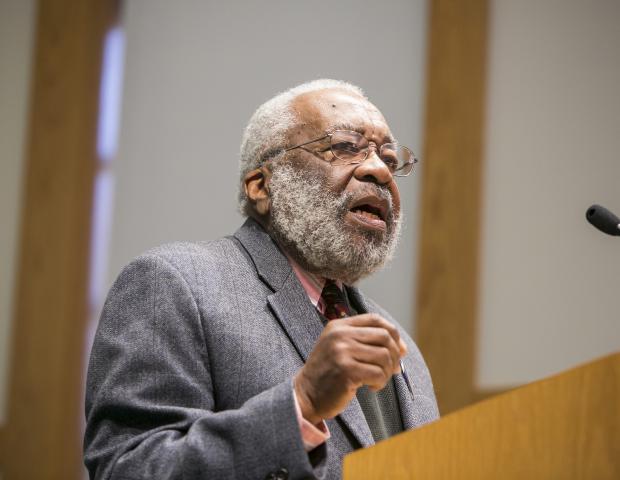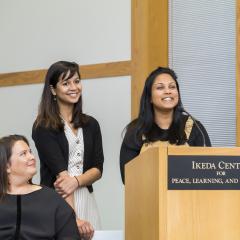What Do We Mean By Dignity?
Vincent Harding addressing an Ikeda Forum audience
The Buddhist humanism that guides our work is non-authoritarian, proceeding not according to the dictates of external authority, but instead with a set of guiding principles and the long-term goal of human and global peace and well-being.
Among the most essential guiding principles, in the view of Daisaku Ikeda, is a concern for and commitment to honoring the dignity not only of all we encounter but of all of life. The grounding for this principle, wrote Ikeda in a 2004 message to the Ikeda Center, is located in the Buddhist teachings of the Lotus Sutra, whereby “all people possess an unsurpassed and inviolable dignity, which it terms ‘Buddha nature.’ According to the Sutra, expression and manifestation of one’s Buddha nature is life’s most fundamental goal.”
It follows then, if we want to help someone, we aid in this manifestation, which carries ethical implications, suggested Ikeda in his dialogue with Ricardo Diez-Hochleitner. First, because “humanity depends on the natural world; when we respect humanity, we must revere and learn from nature.” Second, “recognizing the dignity of the individual must result in mutual recognition and respect.” It is in this manner that honoring dignity is vital to all of our engagement with the world. Thus, when we look at global peacebuilding efforts, wrote Ikeda in his 2013 Peace Proposal, if we accept that “human rights and human security” are the “pillars” that hold a peaceful society up, then “the foundation on which they rest is respect for the dignity of life.” And when we consider life on an everyday level, Ikeda suggests we metaphorically follow the lead of the esteemed Buddhist exemplar Bodhisattva Never Disparaging, who bowed down to everyone he met, confident that each was on the path to Buddhahood.



